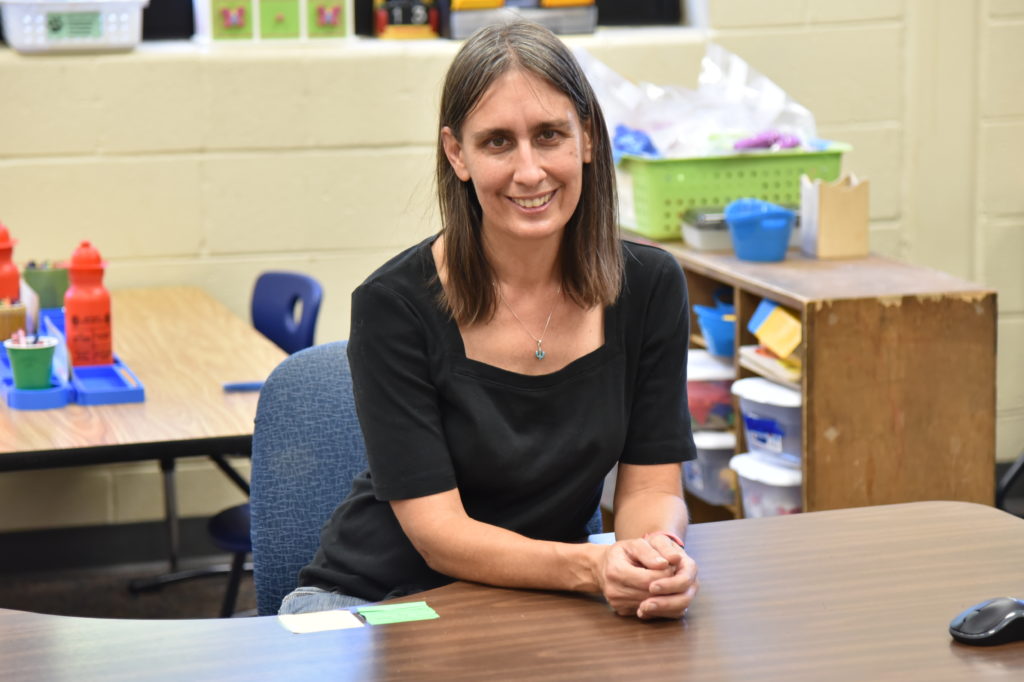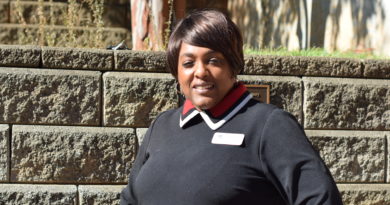Teaching and learning in the ‘new normal’
Clarke County schools started classes face-to-face Aug. 4. With the delta variant spreading, going back to school was a concern among many parents and teachers. The first three days of school brought 124 new cases among students and staff, but spread has slowed since then.
Because younger students cannot get vaccinated yet and children currently make up 26% of COVID-19 cases, elementary school can be unsafe at the moment with concerns of young children getting sick and the virus being more transmissible.
“I am a little bit nervous because they are getting sick and they could pass that to me, and I can’t stay away from a four year old. I can’t always just stay three feet away,” Barnett Shoals pre-K teacher Anna Crook said.
Being a teacher in a time of such uncertainty can be hard, especially working with young children. As of mid-September, over 55,000 children had been hospitalized nationwide due to COVID-19 since August 2020, with no pre-existing conditions.
“From a kindergarten perspective I think they need to do everything they can to keep the kids staying, and they need to prioritize the primary grades like pre K, kindergarten, first, and second.” Although the recent numbers may be concerning, young children benefit from learning in a school building.
“Being in person this year, it just lets me see how important it is for young children to have social interaction and be together,” said Leslie Johnson, a kindergarten teacher at Whit Davis. “Some of these kids who have had to deal with COVID since they were three years old, there’s really basic experiences that they haven’t had that kids usually get.”

Many teachers such as Eulanda Wise found it difficult to teach on an online platform.
“It was extremely difficult to fit (school) into a digital platform and learn the new environment (of zoom). It was hard to engage my students [and] to make sure they had resources,” Eulanda Wise, a fourth grade teacher at Barnett Shoals, said.
Parents share the similar COVID-19 anxiety while seeking a sense of security in bringing their kids to school.
“For many kids it’s very difficult to not be at school. I think that if schools have to go online, kids need connections after school,” said Paula Reynaldi, a parent of one third garder and one freshman.
Knowing that young children can’t get vaccinated, Johnson and Crook try their best to keep their peers and teachers safe.
“Nobody complains when I say we have to put the mask up, they just do it,” Crook said.
“They actually do a pretty good job for being five years old. I just have to remind them,” Johnson said.
Compared to other aspects of pandemic school, masks are the easy part, Crook said.
“We can’t go to recess with the other class. We had breakfast with no mask, recess with no mask, lunch with no mask, water breaks, then we have snack with no mask, but we’re not supposed to share crayons. We have to take anything that was stuffed or soft out (of the classroom). That got really hard. They also couldn’t change centers (for activities). I can’t group them yet so it’s impossible to keep them apart, but we’re trying our best,” Crook said.
Many parents were working while their children were in an online setting last year, which made the already hard situation more difficult.
“My kids had to learn about how to (use) technology. Learning on computers was challenging,” Reynaldi said.
Especially for young children, working with new technology quickly is not easy.
“Those kids are just really too young to be able to do any virtual learning without adult assistance, and it’s not fair to put that pressure on adults,” Johnson said.
Even through the difficulty of being online, some students remained on track.
“Their data on what they achieved was phenomenal. It is exactly where I would have expected it to be, given the amount of time was spent on it. The only thing we didn’t have is good data within their fine motor skills like writing and cutting, because it was harder to do that virtually,” Crook said.
Even while teachers like Crook and Johnson work to ensure safe classrooms and academic progress, some families feel much safer keeping their children at home.
“I think that there’s going to have to be a virtual option,” said Crook. “I think that having teachers teach virtual and face to face does not work. Especially for the kids at home. We almost need to have a Virtual Academy where there are dedicated teachers to teach the virtual students, instead of having to have classroom teachers. I also think there should be some mandatory rapid testing.”




